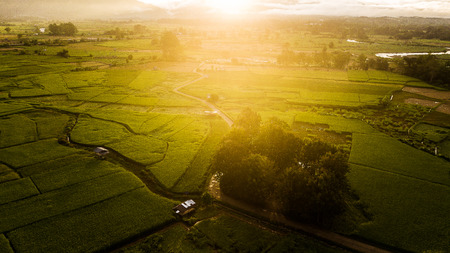Introduction: The Concept of Yin and Yang
The ancient Chinese philosophy of Yin and Yang is, at its core, a way of understanding balance, opposition, and harmony within the world. Rooted in Taoist thought, Yin and Yang represent two complementary forces that shape everything in existence: Yin symbolises qualities such as darkness, stillness, and receptivity, while Yang embodies light, activity, and assertiveness. This dualistic yet interconnected framework offers a lens through which to examine not only Eastern traditions but also dynamics present within Western societies. In the British context, considering the contrasts between countryside and city life through the prism of Yin and Yang can illuminate subtle cultural tensions and synergies. By unpacking this philosophical model, we can explore how these opposing environments reflect broader patterns of balance and difference that permeate British society, from regional identity to lifestyle choices.
2. The British Countryside: Embodying Yin
The British countryside, with its rolling hills, ancient woodlands, and patchwork fields, serves as a living embodiment of Yin qualities within the national psyche. To understand this dynamic, it is essential to analyse the distinct characteristics that make rural Britain an enduring symbol of tranquillity, tradition, and harmony with nature. These attributes not only shape the landscape but also influence how people perceive and experience the countryside in contrast to the city.
Tranquillity and Stillness
At the heart of the countryside’s appeal is its sense of calm and peace. Villages nestled amidst green meadows, winding lanes bordered by hedgerows, and the gentle flow of rivers all contribute to a slower pace of life. This stillness reflects the Yin principle—quietude, receptivity, and softness. In British culture, rural retreats are often sought after for respite from urban busyness, reinforcing the notion of the countryside as a restorative space.
Tradition and Continuity
The countryside is also steeped in tradition. Historic cottages with thatched roofs, age-old customs like village fêtes, and agricultural practices passed down through generations exemplify stability and continuity. Such features resonate with Yin’s association with heritage, nurturing, and connection to origins—qualities that stand in contrast to the more dynamic, ever-changing energy of city life.
Harmony with Nature
Another key aspect is the harmonious relationship between people and their environment. British rural areas are characterised by conservation efforts, respect for seasonal cycles, and a general ethos of stewardship. This attunement with natural rhythms underlines Yin’s emphasis on balance and integration rather than domination or disruption.
Comparative Table: Yin Characteristics in the Countryside
| Characteristic | Countryside Expression | Yin Quality Reflected |
|---|---|---|
| Tranquillity | Quiet villages, peaceful landscapes | Calmness, stillness |
| Tradition | Historic buildings, long-standing customs | Continuity, rootedness |
| Harmony with Nature | Sustainable farming, conservation areas | Balance, receptivity |
| Pace of Life | Slower routines, less urgency | Gentleness, restfulness |
| Aesthetic Qualities | Greenery, soft landscapes, muted tones | Subtlety, softness |
Cultural Resonance in Britain
The British affection for their countryside extends beyond nostalgia—it shapes national identity. Whether it is through literature celebrating pastoral scenes or weekend escapes to areas like the Lake District or Cotswolds, these Yin qualities are embedded in how many Britons define “home” or “belonging.” The countryside thus becomes more than a physical place; it is a cultural touchstone where Yin values are cherished and preserved.

3. British Cities: Manifesting Yang
British cities such as London, Manchester, Birmingham, and Edinburgh are vibrant epicentres of energy and innovation, epitomising the Yang aspect within the yin-yang dichotomy. The dynamic pulse of urban life is characterised by constant movement, forward-thinking ambition, and a palpable sense of outward expansion. Skyscrapers pierce historic skylines, while bustling streets echo with diverse voices from around the globe. These urban spaces are arenas for cultural fusion, technological advancement, and economic drive—traits intimately linked to the active, assertive qualities of Yang.
Yang energy in British cities can be observed in their relentless pace and adaptability. London’s financial district is a global powerhouse, a hive of activity where decisions made ripple across continents. Similarly, creative industries flourish in Manchester’s Northern Quarter or Glasgow’s West End, blending tradition with innovation in music, art, and digital media. The multicultural population of these cities brings together a spectrum of traditions, languages, and cuisines, forging a cosmopolitan identity that is inherently outward-facing and expansive.
This constant interaction between differing cultures and ideas fosters resilience and creativity. City dwellers embrace change as part of daily life: new technologies are quickly adopted; pop-up markets showcase the latest food trends; festivals celebrate everything from Caribbean heritage to Diwali. In this sense, British urban environments become crucibles for transformation—a hallmark of Yang—where boundaries are pushed and possibilities are continuously redefined.
4. Cultural Perceptions: Town versus Country in the British Mindset
The contrast between rural and urban life is deeply embedded in the British psyche, often conceptualised through a “Yin and Yang” framework that recognises both tension and balance. Stereotypes associated with each setting are not merely superficial; rather, they reveal underlying social beliefs about identity, class, and tradition.
Stereotypes and Common Attitudes
In Britain, the countryside is frequently romanticised as tranquil, wholesome, and inherently ‘authentic’. Villages are imagined as close-knit communities where everyone knows one another, embodying values of simplicity and stability. By contrast, cities—especially London—are seen as fast-paced, diverse, and progressive but also impersonal or even overwhelming. These perceptions are persistent across generations and influence everything from literature to political discourse.
| Aspect | Countryside (Yin) | City (Yang) |
|---|---|---|
| Community | Tight-knit, traditional | Diverse, individualistic |
| Pace of Life | Slow, predictable | Fast, dynamic |
| Values | Conservative, rooted in heritage | Liberal, future-oriented |
| Perceived Opportunities | Limited, stability-focused | Abundant, ambition-driven |
| Stereotypes | Insular, parochial | Aloof, disconnected from tradition |
Social Beliefs Behind the Divide
These cultural binaries reflect more than lifestyle differences; they illustrate deeper anxieties about change and continuity. The rural ideal is often linked to nostalgia for an imagined past—a Britain unspoilt by modernity—while the city symbolises innovation and multiculturalism but also uncertainty. This dualism influences debates on national identity, with some seeing the countryside as the “true” Britain and cities as sites of flux.
The Ongoing Dialogue
The British rural-urban divide thus operates as a metaphorical Yin and Yang: each side is defined in relation to the other, with strengths counterbalancing weaknesses. While caricatures can be limiting or exclusionary, they also provide a language through which people negotiate belonging and difference in contemporary Britain.
5. The Interplay and Balance: Navigating Modern British Life
In the ongoing dynamic between city and countryside, many Britons find themselves actively seeking a balance that reflects the Yin and Yang philosophy—recognising that both environments offer unique benefits while also presenting distinct challenges. This interplay is especially visible in modern trends that blend the vibrancy of urban life with the restorative calm of rural settings.
Urban Gardening: Bringing Nature to the City
One notable trend is the rise of urban gardening. From rooftop allotments to community gardens nestled between terraced houses, city dwellers across Britain are carving out green spaces wherever possible. These initiatives not only provide access to fresh produce but also foster a sense of tranquillity and connection to nature within the bustling metropolis. For many Londoners or Mancunians, tending to a few pots of herbs or tomatoes on a balcony becomes a daily ritual—a momentary retreat from the relentless pace of city life.
Remote Working: Flexibility Across Environments
The shift towards remote working, accelerated by recent global events, has further blurred the lines between urban and rural living. Many professionals now divide their time between city offices and countryside homes or co-working hubs in picturesque villages. This flexibility allows people to enjoy the cultural offerings and opportunities of cities while also escaping to greener pastures for focus and relaxation. The ability to log on from a cottage in the Cotswolds or a flat in Edinburgh represents a new form of balance, where technology enables individuals to curate their ideal lifestyle.
Weekend Escapes: Seeking Solace Beyond the Urban Sprawl
Weekend getaways have long been part of British culture, with city residents heading to national parks, seaside towns, or quaint market villages for respite. Whether it’s hiking in the Lake District, strolling along Cornish beaches, or simply enjoying a quiet pub lunch in the Shires, these short escapes serve as essential counterpoints to city living. They reflect an innate desire to reconnect with nature and restore equilibrium after a hectic week—embodying the harmonious duality at the heart of Yin and Yang.
A Contemporary British Balancing Act
This ongoing search for equilibrium is not just about physical location; it reflects broader values in British society. The ability to appreciate both sides—to thrive amidst urban excitement yet value moments of peace—demonstrates adaptability and resilience. By embracing elements from both worlds, Britons continue to navigate modern life with a nuanced understanding of balance, drawing strength from both the city’s energy and the countryside’s serenity.
6. Conclusion: Embracing Contrasts as Complements
Recognising the interplay between the countryside and the city in Britain is much more than an exercise in cultural comparison; it is a pathway to appreciating the nation’s full spectrum of identity. The yin and yang dynamic—where opposites not only coexist but also enhance each other—offers a valuable lens through which to view British life. By valuing both rural tranquillity and urban dynamism, we create room for balance, innovation, and resilience within society.
Too often, debates pit the countryside against the city, casting them as mutually exclusive or even antagonistic. Yet, as with yin and yang, their strengths are most apparent when seen in relation to each other. The countryside offers space for reflection, connection to nature, and preservation of tradition; the city fosters creativity, diversity, and economic opportunity. When both are recognised as vital components of national life, they provide complementary energies that enrich everyday experience and collective well-being.
This holistic perspective encourages policymakers, businesses, and individuals to bridge divides rather than reinforce them. It inspires urban planning that incorporates green spaces, rural projects that harness digital connectivity, and educational exchanges that celebrate local heritage alongside global perspectives. Such cross-pollination ensures that neither the city nor the countryside is left behind or undervalued.
Ultimately, embracing the contrasts between Britain’s urban and rural worlds fosters a culture that is flexible, adaptive, and open-minded—a culture equipped to face modern challenges without losing sight of its roots. Recognising and valuing both sides of this spectrum is not just about tolerance; it is about weaving together a resilient fabric for British society, where differences are not just accepted but cherished as essential elements of national strength.


